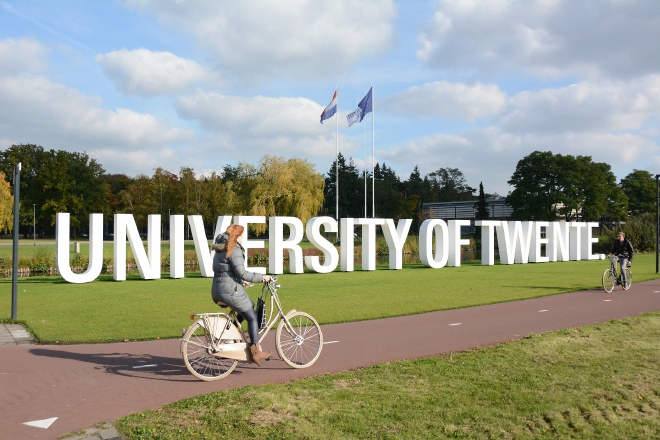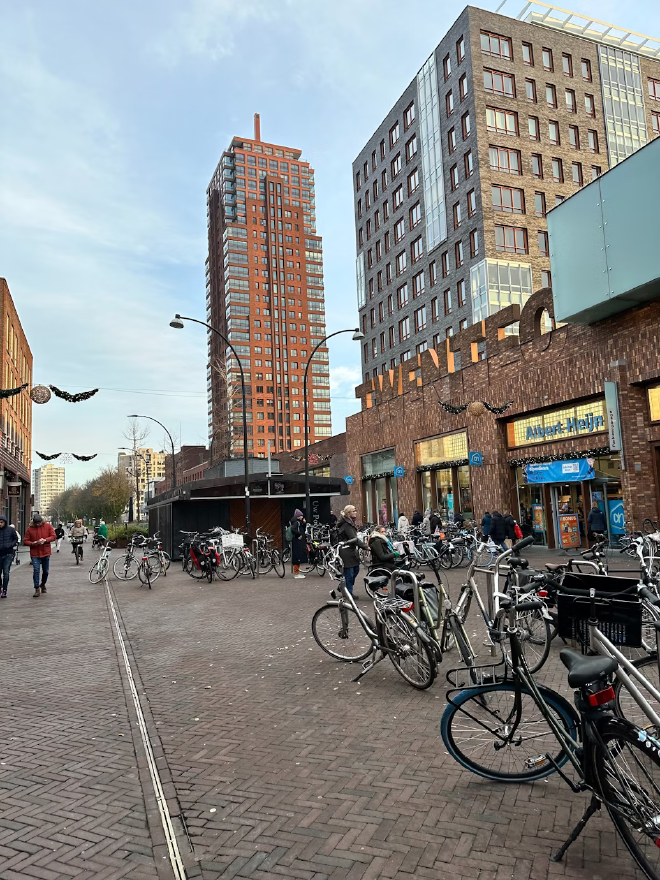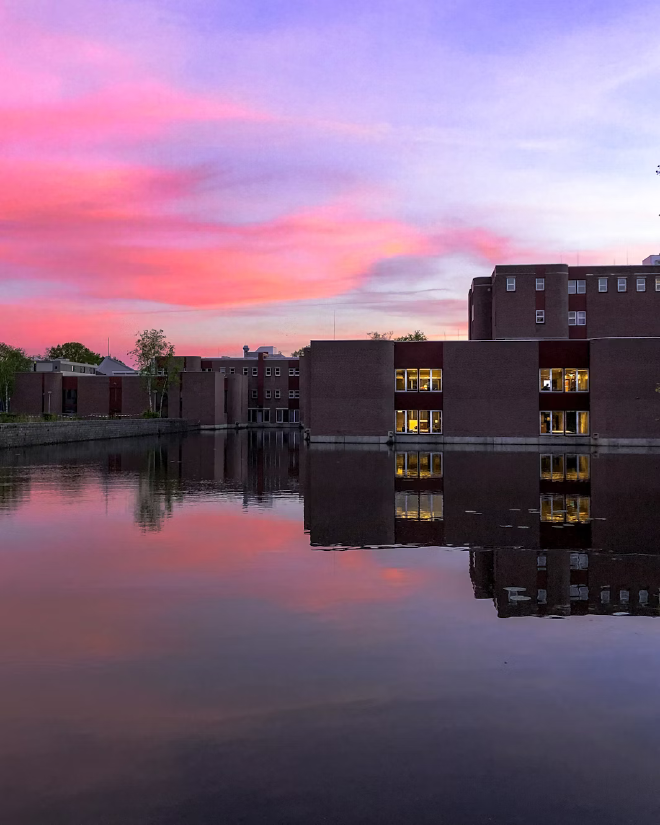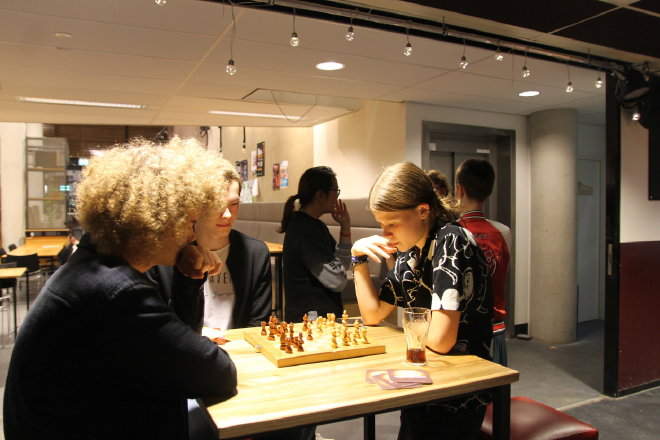The University of Twente: a Reflection on my Experience

Table of Contents
In July 2024, I concluded my studies at the University of Twente (UT), obtaining two degrees: a Bachelor of Applied Mathematics and a Bachelor of Technical Computer Science. The university met and even exceeded my expectations. I am mainly writing this text to explain why I had such a good time, but I will also highlight some reasons you might want to avoid these programs.
Environment #
Netherlands as a place to live #
The Netherlands is a great place to live as a student if you can afford it. The Dutch society is very progressive and friendly towards foreigners. Admittedly, there has been some political backlash against international students in the Netherlands recently. The government plans to make it harder for international students to come by forcing the universities to teach in Dutch. But the students who are already in the Netherlands are treated well. So as long as you can find an English-taught bachelor, it should not affect you much.
One of the reasons for this contempt is that EEA students, who work at least 8 hours a week, are (under EU law) entitled to DUO – the financial support Dutch students get. Check the up-to-date info, but as of writing, it is around €350 a month basic grant, and you get more if your household is considered low-income (according to the Dutch standards). Note that if you don’t graduate, you need to repay this money.
While the flat countryside is boring, it fosters a culture of cycling (as a means of transport). Cyclists are first-class citizens on Dutch roads, with dedicated and usually well-separated bike lanes and traffic lights. Especially in a smaller city like Enschede, being able to cycle everywhere made me feel very free. If you have ever owned a car, you know the feeling. But unlike when driving a car, while cycling around the Netherlands you never have to buy gas or pay for parking. Just be ready your bike might get stolen every once in a while – that is part of the ‘studying in the Netherlands experience’. The buses are quite expensive, so I would bike in all weather. Trains are expensive but excellent. Consider the NS Flex discount subscription.
Enschede as a place to live #
Enschede, with the surrounding area, has around 160,000 residents. There are music festivals and a couple of clubs, but if you are used to a big metropolis, it can be quite underwhelming. I enjoyed less crowds and less noise. It is in the east of the country near Germany, an area which is not as economically developed as Randstad. As a consequence, you will save some money on rent and even groceries. It will also be easier to find housing, although notably, it can still be very difficult.

The UT Campus & Study facilities #
The UT calls its campus “the only all-in campus in the Netherlands”. It is indeed very nice, large and organic. Most of the buildings are modern and besides lecture rooms also include many places where students can sit and study. You may also book a project room for 2-8 people (some with a whiteboard or a projector) for up to two hours twice a week.
Besides facilities for studying, the campus also has a sports centre with a wide selection of sports and a gym. The Vrijhof cultural centre offers dance and other artsy hobbies. Check for whatever you are interested in, I think the odds are you will find it.
Each study has a study association: a volunteer-run organization which arranges events about once or twice a week. Most involve drinking and I was surprised the alcohol is quite affordable, it’s rare to see a beer cost more than €2.
Education #
General University #
At the University of Twente, the bachelor courses are organized into modules. A module is essentially just a fancy name for a quartile (i.e. there are four modules in a year). Each module is about 10 weeks long. In the first 8ish weeks, you learn theory (usually in several subjects) and then towards the end of the module, you apply the theory you learned in a project. This project is almost always a team project and tends to be around 30% of your grade.
Most classes will also have an exam. The grades are on a 1 to 10 scale and you need a 5.5 (50%) to pass. Whether you fail or pass the exam, you may go to one resit and the better grade will count. Usually, this resit is about two weeks after the first exam, but some classes will have the second attempt much later. If you fail the resit also, you will have to take the class again next year.
In the first year, you need to obtain a thing called binding study advice. It is a beautiful euphemism: if you get negative binding study advice, your study is terminated. Each study has its own criteria, but generally, you are expected to obtain at least half of the credits. If you receive positive binding study advice in the first year, you have 10 years to obtain your diploma. In that time, you may progress at any pace.
UT provides access to a study adviser and at least my advisor was very helpful in resolving any issues or questions I had in my study: from changing the study plan to picking an elective. It’s very nice to have someone to talk to, and our adviser was very helpful.
Technical Computer Science (TCS) #
Content and Form #
I had a good experience in most computer science classes. The teachers are motivated and capable, the courses are well organized. I believe this degree prepares you well for a successful career.
I do, however, have to say the quality of courses was less consistent than what I experienced in the applied mathematics degree. Occasionally the lab would not be very well prepared, or the teacher’s English was not perfect. However, if you can keep your head up and remind yourself a thing as complex as a computer science bachelor can never be perfect, you can easily get through these little hardships. Importantly, 99% of the material was something I saw value in learning. And if the professor is not great in 10% of courses, you can see that as an opportunity to become a more independent learner.
One area most students consider useless is the career skills (formerly called academic skills) components. Those are small parts of each quartile dedicated to soft skills, such as feedback, intercultural communication and writing. I found that if manage to ignore the part of you, which screams “I came here to study computer science, not personality types!”, I usually actually learnt interesting and useful things there too.
Workload #
The TCS degree is designed as a full-time three-year program. But there is a lot of flexibility in how long you spend completing the degree, especially after you obtain your binding study advice in the first year. Most students spend a bit more than three years and Dutch students especially tend to stay even five years or longer.
If you want to finish your degree in three years, you should be ready to put in the full-time, i.e. 40 hours a week, they expect. That is not to say no students are working on the side, but they either spend well over 40 hours on school + work, or they take longer to finish their studies. If you plan to work next to your studies, it is advisable to spend at least the first module unemployed, to get a feeling of how much time you have left.
The TCS degree is not for free, but if you show up and put in the hours, you can expect to pass. If students fail an exam, it is usually because they try to be strategic with how much time they invest in the class: they did not go to the lectures, they did not do all of the (ungraded) homework, etc. Of course, your mileage may differ, but this is my impression of how it works for most people.
Culture #
There are many Technical Computer Science students at the University of Twente, in my year perhaps 120 were left by the time the second year started. It is a very international environment, you will be completely fine without speaking Dutch. The study association Interactief organizes around two social events for computer science students every week, so you will not be bored. Most of these events involve drinking, beer is very affordable there. I did not take part much, as I don’t drink and prefer to spend my time with fewer people in quieter environments. But everyone was quite nice to me I do think it is a big advantage of this university if you are into it.
Applied Mathematics #
Content and Form #
Do not let the name fool you, Applied mathematics is applied only when compared to pure mathematics. Most of the subjects you take are theoretical foundations any mathematician needs (Analysis, Linear Algebra), and even the most applied courses, such as Systems Theory or Stochastic Systems, are quite theoretical. I do not think this is a bad thing, but it is something to beware of.
The teachers in mathematics are both likeable and demanding. The lectures are overwhelmingly of high quality, and if you do not like them there is almost always a textbook you can use instead (or as a supplement). Each week there will be a set of exercises for you to complete, as well as a tutorial in which you may ask teacher assistants (or the teacher himself) for help.
Despite the very high quality of the education, the number of Applied Mathematics students at UT has been in decline for some years now, so the classes tend to be quite small. After about 50% of students drop out in the first year, you can expect 15 to 30 people to attend a lecture. While I feel bad for the hard-working UT staff, it does mean you will have a more personal relationship with the professor.
Workload #
The difficulty of the mathematics degree is significantly higher than the difficulty of computer science. Many talented people come because they enjoyed math in high school and were good at it but unfortunately are not able to keep up with the demands and leave in the first year.
Even the people who stay can have a hard time. Every single course I took in the Applied Mathematics program was difficult for me. As you get better at studying, the difficulty of the material increases. Unlike in computer science, it is not uncommon for an intelligent, hard-working student to put the expected effort into a course and still fail the first attempt at an exam. Unlike in Technical Computer Science, teachers are not satisfied with you putting in the effort. They judge if you understand the material.
I hope my description is not too discouraging, I am just trying to be honest. You are signing up for something hard. But if you can do it, I think this experience is very valuable. It will teach you discipline, focus, and time management. I value my knowledge from Applied Mathematics more than I value my knowledge from Technical Computer Science.
Culture #
Having a common struggle is a great base for friendship, and this is probably the reason I preferred to spend my time with my classmates from mathematics over computer science. Math students at the University of Twente are smart and hard-working, but humble and surprisingly relaxed. I have felt none of the toxic competitiveness you might expect in such a challenging study.
When not in class, you will find them in the Abacus (the study association) room playing board games: from Chess to Tichu. While most of the math students are Dutch and they will only switch to English if an international student is part of the conversation, I have always felt accepted and among my own.


The Double Degree #
The University of Twente offers a unique opportunity to earn the two forementioned bachelors in three years. To achieve this, you will (in most quartiles) earn ~20ECs instead of the regular 15ECs. You can think of this as a “buy one, get one 66% off” discount. Is this opportunity right for you?
Of course, already the regular UT studies can be quite demanding, especially AM. The double degree is 33% extra effort, with some additional challenges, such as overlapping lectures. To thrive in this program, students rely on a combination of working harder and being more effective than the average student. Shoutout to Hessel Stokman who appears to be able to study math about twice as fast as me.
I would say the double degree is right for you if the following applies:
- You would very much like to pursue both math and computer science, making it almost impossible to choose one.
- You want to challenge yourself and do something hard (but you don’t have enough respect for authority to join the army 🙂).
Maybe one of those will be enough if it is very strong, but ideally you should have both of those qualities at least to some extent.
Do not sign up for the double degree if you want to do it for the credentials. You will sooner or later realize the time you need to invest is not worth the second degree on your CV. The second degree can serve as additional motivation, a bonus that you get for taking extra courses for the entire three years. But, if you are to be successful, you need to do this for the love of math and computer science.
If this sounds like something you would like to do, but you lack the confidence to believe you can pull it off, two things make this decision easier.
- The tuition fee is the same as if you are doing a single degree.
- It is possible to transition into a regular degree pretty smoothly, especially if you realize this is not for you in the first module or two.
Conclusion #
I was a poor student for most of high school. For most classes, I did not study at home or do my homework, my retention from class was enough to earn me Cs and Ds. I felt the school did not enable me to pursue my passions: computer science and mathematics. As a result, I did not have an attractive profile when applying to universities. With my mediocre at best grades, this university welcomed me with open arms. Of course, there are entrance requirements, but there is no entrance exam and they will not rank students and only accept the best ones. This inclusiveness made me a bit worried the university would be too easy, but the standards are high. Only instead of trying to figure out whether you will be able to succeed, they let you try. The University of Twente took a chance on me, and for this, I will always be grateful.
While I never attended a Czech university to which I could directly compare the University of Twente, I believe the quality of individual courses was higher than what I could get in Czechia. Besides getting a better education, I also experienced a new country: the people, their culture, and the environment. While you may see a country during a two-week vacation, you need to spend more time to know a country. Living abroad for an extended period (such as three years) will not only expose you to the culture of the place you move into but through culture shock and observing the differences also makes you learn about your own culture. Mostly everyone these days has been a broad for a trip. But having lived abroad remains an experience most people never had.
One drawback to consider is that studying abroad will isolate you, to an extent, from your family. Enschede is a 10-hour train ride from Prague, and I would come home at least 3 times during the school year, and for most of the summer. But the amount of day-to-day interactions you miss out on is a heavy price to pay for this experience. The scarcity, however, helped me realise the value of my family relationships and in this way helped me make more effort to improve them.
So, are your next three years going to take place in Enschede? If you have questions, or if you found this text helpful in making your decision, feel free to get in touch.